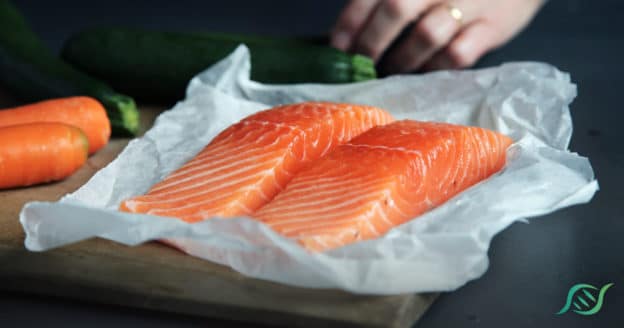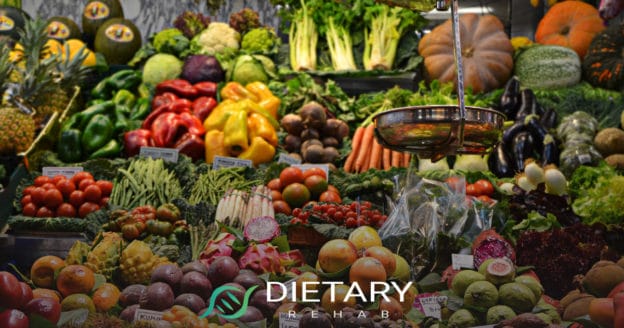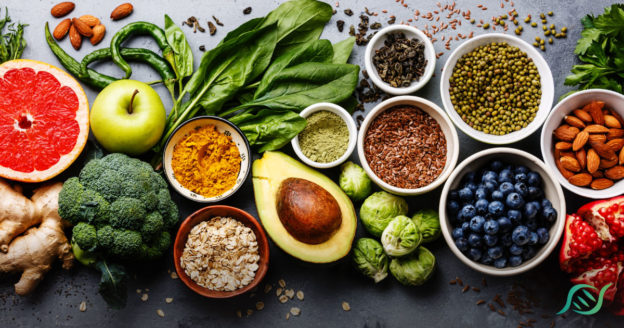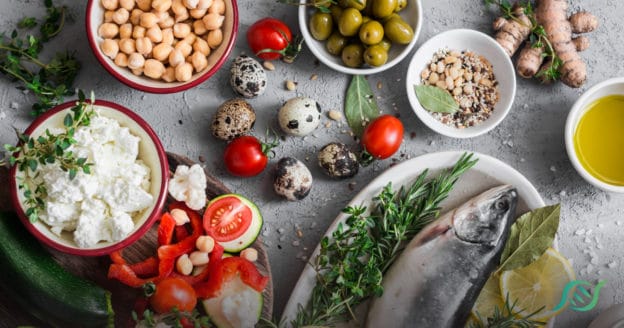
The debate of farm-raised fish vs. wild-caught fish has persisted since the dawn of the aquaculture industry. Many fish farms have appeared in recent years to meet the world’s increasing demand for fish, but there are distinct differences in the nutritional value of fresh-caught fish and farm-raised fish.
There are valid arguments on both sides of this debate. On one side, farmed fish helps meet the demand for fish at a lower cost than fresh-caught fish, while also preventing the destruction caused by commercial fishing. Wild-caught fish typically offer better nutritional value, but commercial fishing has already damaged the world’s ocean ecosystems to staggering levels.
Benefits of Farm-Raised Fish
Farmed fish generally subsist on a cheap diet of corn and soy. While this offers little in nutritional value, it does help keep prices manageable. Unfortunately, the drawbacks of farmed fish far outweigh the perceived benefits.
Potential Drawbacks of Farmed Fish
Supporters of fish farming primarily claim that fish farms reduce the need for commercial fishing operations that damage different fishes’ natural habitats and wild fish populations. However, fish farms have the potential to cause serious ecological damage. Fish kept in farms typically spend their lives in very tightly packed pens, making it easy for sickness, diseases, and parasites to spread in farm populations.
Sickness and parasites from farmed fish can also affect the surrounding wild fish populations. For example, a sea lice infestation recently wiped out roughly 80% of the pink salmon population off the coast of Western Canada*. This contamination could easily affect local wild fish populations which will then harm the predatory species that depend on those fish as food sources, such as birds, bears, and killer whales.
Some predatory farmed fish like salmon also require enormous amounts of feeder fish like mackerel and anchovies. For example, it can take as much as two pounds of feeder fish for every pound of farm-raised salmon. This puts incredible strain on the anchovy and other feeder fish populations, which have faced overfishing nearly to the brink of extinction. Ultimately, fish farming is one of the least sustainable forms of fishing and poses significant risks to the environment and consumer health.
Imported Fish Risks
Another serious risk of eating farmed fish arises with foreign-sourced fish. For example, there are no health and safety inspectors overseeing the fishing industry in China, and some Chinese fish farm workers have reported appalling conditions at many Chinese fish farms**. Some workers have reported sewage in fish pens, rampant disease, filthy working conditions, and dyes used to conceal contaminated fish.
Why Go for Fresh-Caught?
Unless you buy fish directly from a fish farm and have confidence they use safe and healthy practices, there is simply no way to tell where the farmed fish in your grocery store came from. Many farmed fish can be some of the most toxic food in the average store, depending on its source. It’s ultimately better to choose wild-caught fish whenever possible. It may be more expensive, but it is healthier than farmed fish and discourages the fish farming industry from persisting.
Better, Natural Nutrition
Wild-caught fish survive on a natural diet, which can include smaller prey fish, ocean-based plants, algae, and other natural foods. This leads to healthier development, and fish in the wild may roam and move as they please rather than contending with the hyper-confinement of a pen at a fish farm. Penned fish generally experience severe stress during their entire lives, increasing the chances of infections and other health issues and diminishing their nutritional value.
Devastating Struggling Ecosystems
Fish is a highly sought-after food due to its perceived nutritional value, but wild-caught fish offer significant nutritional benefits over farmed fish. For example, one of the most commonly farmed fishes in the world is tilapia, one of the most farmed fish in the world. Many people avoid tilapia due to its generally unsavory reputation and potential health risks, but choosing wild-caught salmon puts strain on the wild salmon population.
Tilapia nutrition is a far cry from the dietary value of wild-caught salmon, and wild-caught salmon is harder to procure. Naturally, the salmon will cost much more. This creates incentive for commercial fishing operations to capitalize on fish in high demand, but they in turn devastate existing wild fish populations. This approach may not be as harmful as fish farming, but it isn’t sustainable either.
Finding Out Which Fish Is Right For You
If your main concern is nutritional value then avoiding farmed fish is your best option. This may be more expensive, but take the time to shop around your area to see the types of fresh fish available. This will be more difficult in some areas than others due to distance from the ocean and shipping issues.
Some fish provide more health benefits than others, and some people may benefit from different types of fish. For example, some wild fish have higher levels of omega-3 fatty acids while others have higher protein content.
Schedule Your Nutritional Assessment Today
If you are unsure about your fish options, the Dietary Rehab team can help. The best way to approach nutrition is with an individualized breakdown of your unique nutritional needs. Preexisting medical conditions, allergies, and food sensitivities are important considerations when developing a diet plan.
A nutritional assessment can help you with your dietary and weight loss goals. If you’re looking for ways to improve your overall health or boost your immune system, an assessment can help with that as well. Learn more about the dietary counseling services that we offer at DietaryRehab.com.











